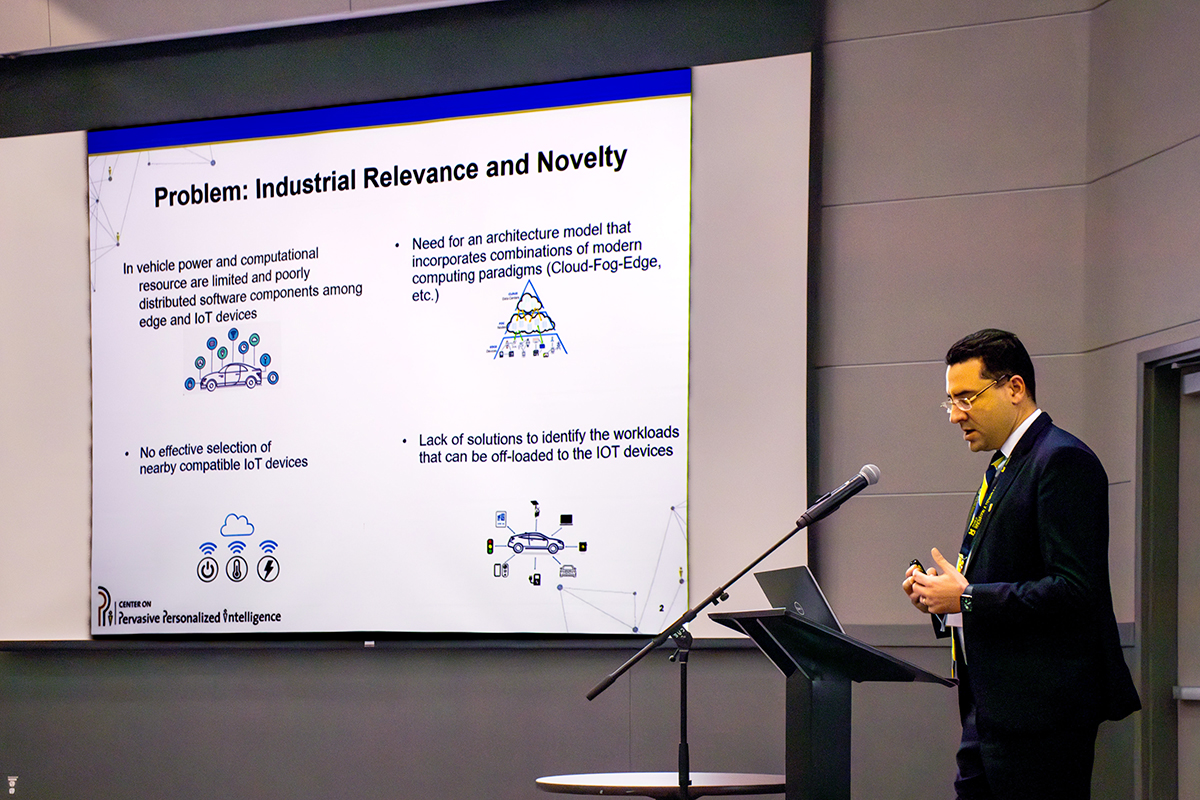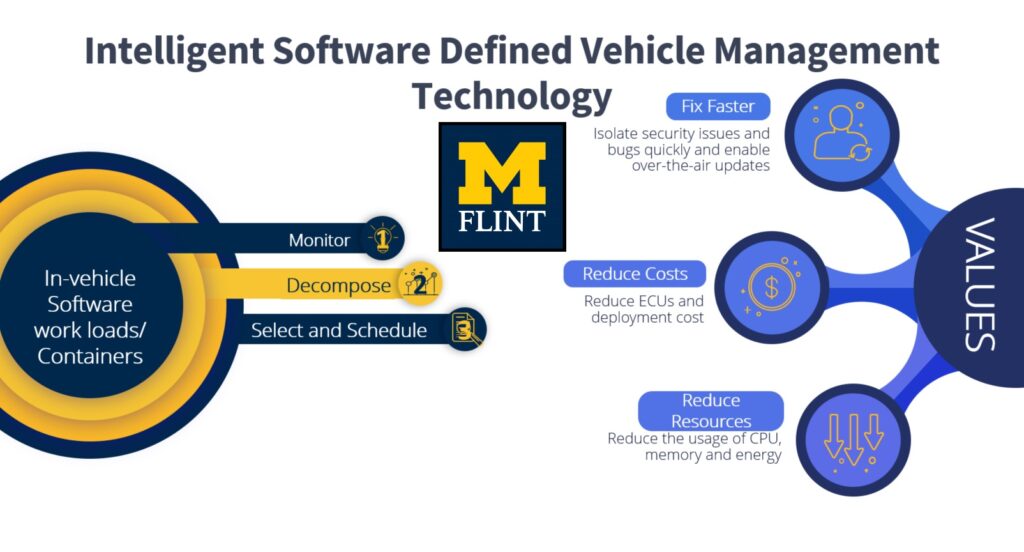CIT awarded MTRAC grant from MEDC for commercialization of research

As technology continues to drive the automotive industry forward, there appear to be as many challenges as there are opportunities. While the industry shifts toward autonomous vehicles that connect to an increasing number of internet-connected smart sensors and devices, a balance must be struck between consumer priorities and technical constraints. For example, how can massive computational power be fit in small spaces to deliver real-time road decisions while maintaining cybersecurity standards, handling updates, and minimizing energy consumption?
Marouane Kessentini, Winegarden Professor of Computer Science and associate dean for research and graduate studies at the University of Michigan-Flint's College of Innovation & Technology, has been leading research teams for nearly a decade, innovating artificial intelligence, software engineering and machine learning to address and eventually solve these problems. Recently, Kessentini and his team received a $90,000 Michigan Translational Research Commercialization grant for the commercialization and acceleration of the innovations he and his fellow researchers have developed.
The program, titled "Intelligent Software Defined Vehicle Management Technology," aims to build a system of embedded containers, workflows, and an intelligent algorithm that can balance the use of resources in response to constantly changing vehicle needs and priorities.
"What is more important in cars these days is actually the software, rather than the hardware," Kessentini said.
The project's proposal breaks down the challenges of autonomous driving and identifies the various security vulnerabilities that must be protected. It also looks at the challenges of incorporating and analyzing data from smart devices both in and out of the vehicle. Where it really differentiates from the existing market solutions in the field, though, is in the unique ways it can conserve energy, balance workload, and enable automotive high performance computers.
Automotive HPCs enable vehicles to continually update cybersecurity and firmware even as vehicles drive. In efforts to meet increasing demands placed on those systems by our desire for autonomous vehicles, the team has integrated solutions that isolate software or hardware that is being upgraded, fails or is under attack, and rebalance the workload to other parts of the system.
The team has also designed systems for the HPCs to make adjustments when the vehicle is determined to be too low on power to complete the planned trip. The system optimizes for power conservation and suggests the nearest stations for gas or charging.

MTRAC is sponsored by the 21st Century Jobs Fund through the Michigan Strategic Fund and administered by the Michigan Economic Development Corporation with a mission to reinforce the connection between translational research and entrepreneurship and accelerate availability of new technologies to the commercial market.
"An important part of our identity at UM-Flint is that we strive to make an impact on our community and society through our research or education, and how we can also serve local industry to be the best that it can be," Kessentini said.
This was the first time that UM-Flint has won an MTRAC award. Kessentini hopes that this grant is just one of many that will help put Flint and Genesee on the Michigan SmartZones map of the MEDC. SmartZones provide distinct geographical locations where technology-based companies, entrepreneurs and researchers can locate in close proximity to community assets that assist in their endeavors.
"The scope of the MTRAC program is to support faculty who achieve a certain maturity of their research that can really make an impact on society and usefulness in scalable real-world scenarios," he said.
The researchers plan to use MTRAC support to create a startup and bring their product to market. They have interested automotive industry partners and unique advantages over current industry solutions, including the ability to isolate software issues in the car, optimize the usage of memory and CPU to reduce the number of needed ECUs in the car and reduce the energy needed to execute software in electric vehicles. They estimate an achievable market of $200 million within five years.
Related Posts
No related photos.
Rob McCullough
Rob McCullough is the communications specialist for the College of Innovation & Technology. He can be reached at [email protected].